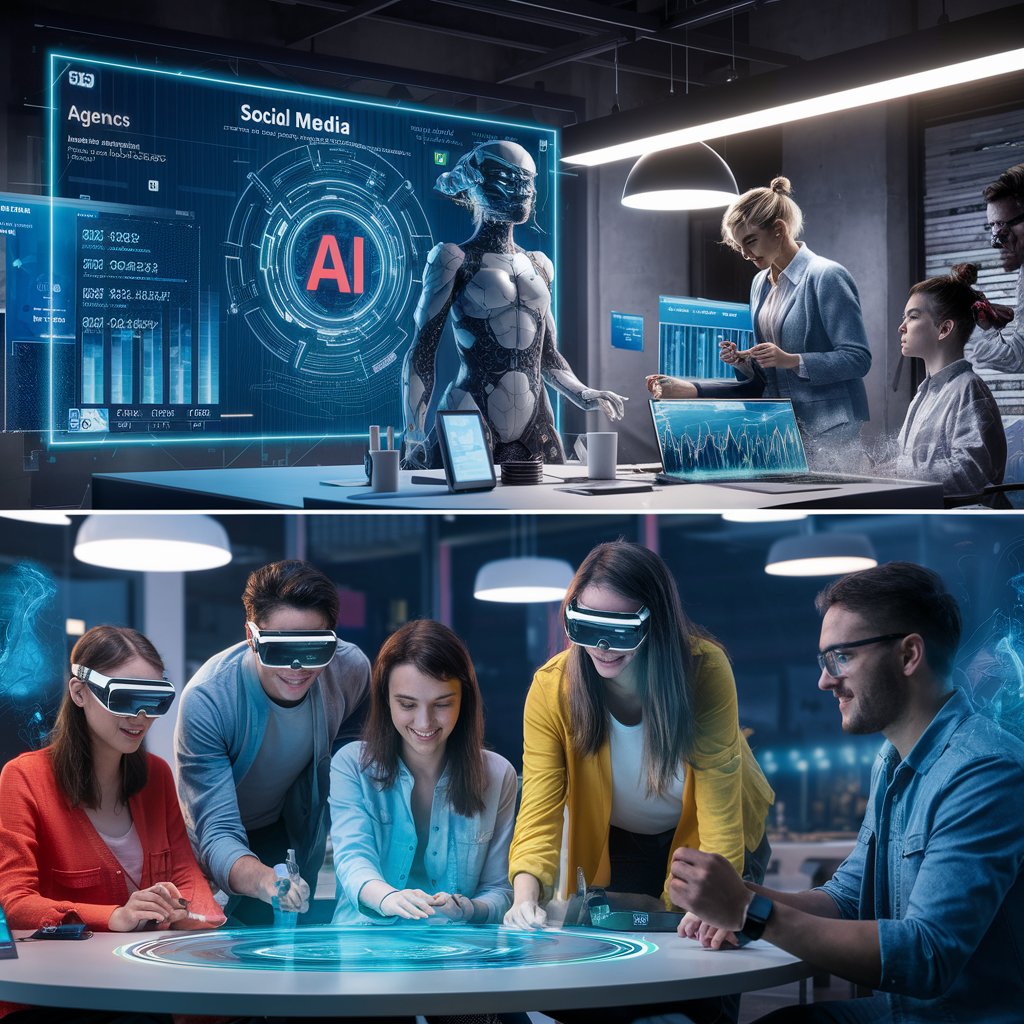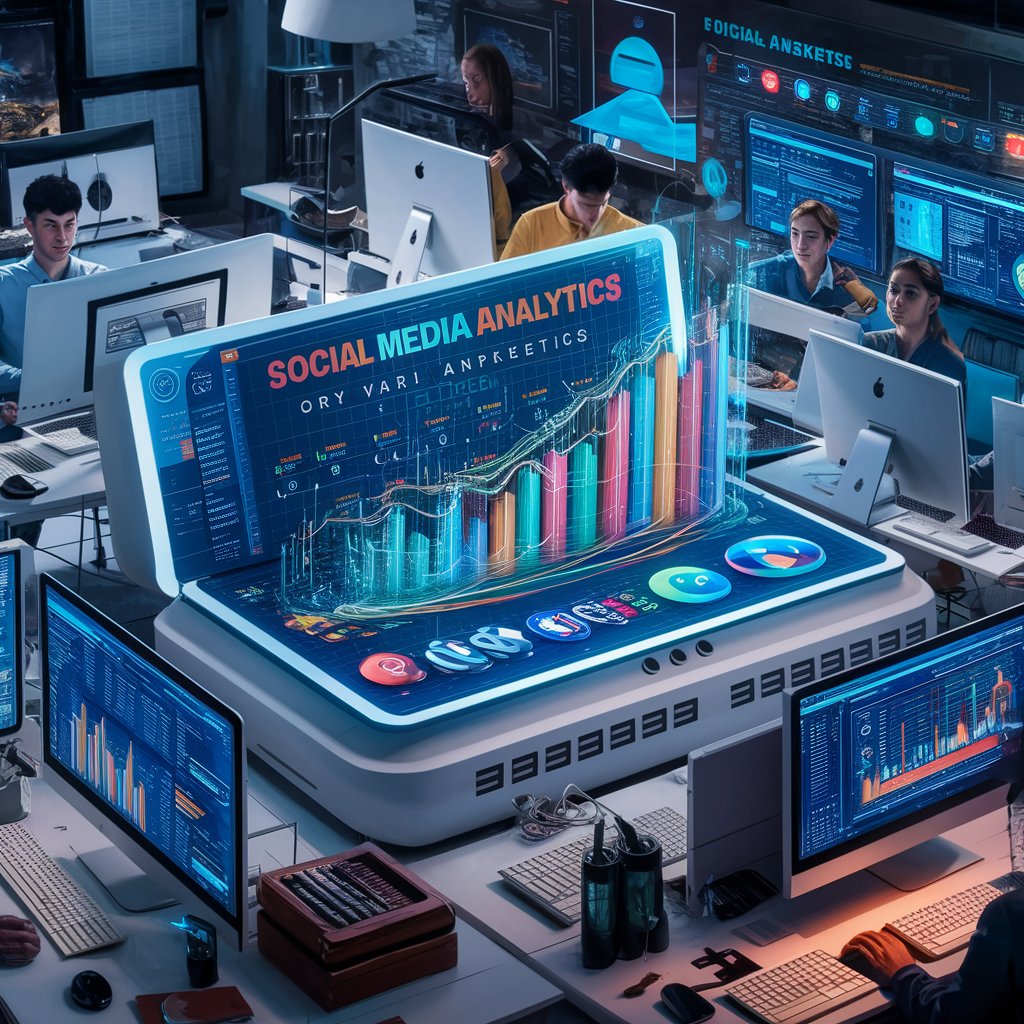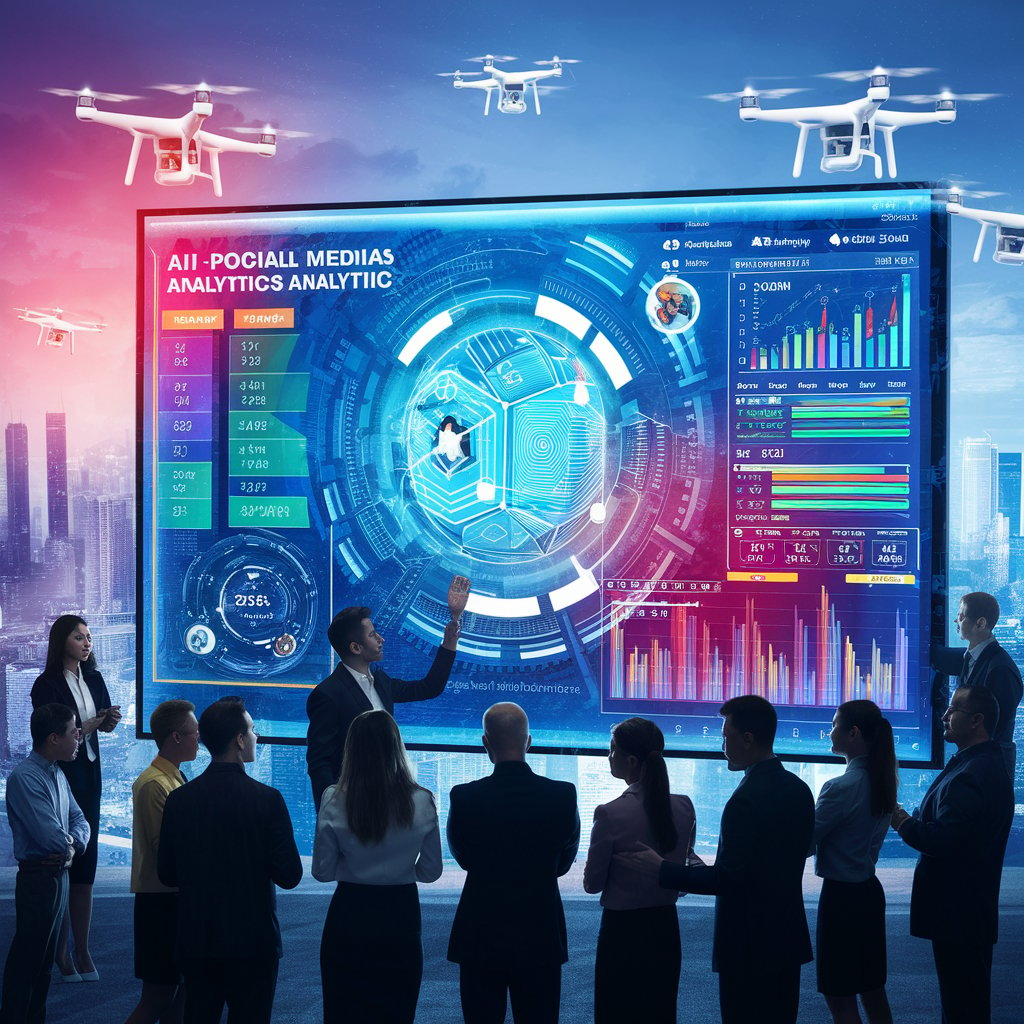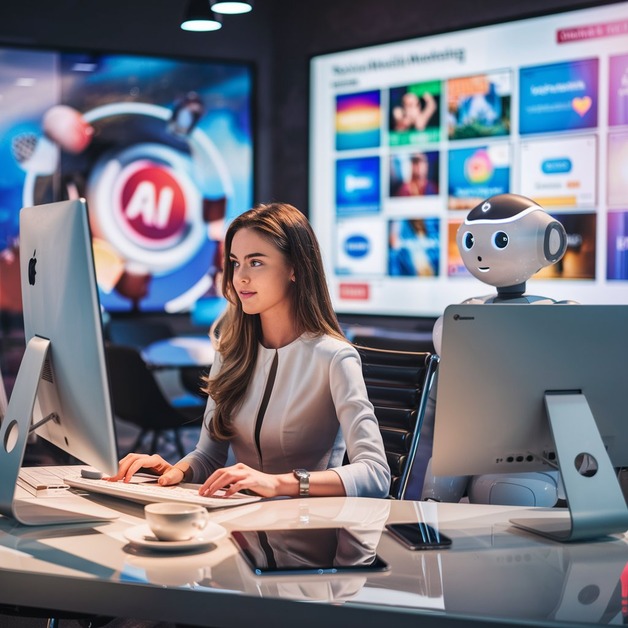Introduction
It is impossible to overstate the crucial role that social media plays in the dynamic and ever-evolving sector of digital marketing. . Social media platforms have become vital channels for businesses to connect with their audiences, promote products, and build brand awareness.The sheer amount of data produced on these platforms, though, can be debilitating. Hello, AI-powered social media analytics. This is a great tool that helps marketers understand complex data, glean insightful information, and make wise judgments. In this piece, we explore the inner workings of artificial intelligence (AI)-driven social media analytics, as well as its advantages, practical uses, and prospects in digital marketing.
Understanding AI-Powered Social Media Analytics

Artificial Intelligence-powered social media analytics analyzes and interprets enormous volumes of data from social media platforms by utilizing cutting-edge technology like machine learning (ML) and natural language processing (NLP). Unlike traditional analytics tools that may focus on basic metrics like likes, shares, and comments, AI-driven tools go deeper, analyzing content, sentiments, trends, and user behaviors. This comprehensive analysis provides businesses with a nuanced understanding of their audience, enabling them to craft more personalized and effective marketing strategies.
Key Benefits of Artificial Intelligence-Powered Social Media Analytics
- In-Depth Customer Insights
The capacity of Artificial Intelligence -powered social media analytics to offer comprehensive consumer information is one of its biggest benefits.Artificial Intelligence can detect patterns and trends in customer behavior, interests, and feelings by examining data from multiple social media sites. For example, a beauty brand can use AI to analyze customer feedback on platforms like Instagram and Twitter to discover which products are popular and why. Then, with this information, new items that better suit consumer needs can be developed or current ones can be improved.
- Enhanced Content Strategy
By determining the kinds of content that resonate most with their audience, Artificial Intelligence-driven analytics can assist organizations in optimizing their content strategies. For example, a travel agency may discover that their viewers are more interested in watching videos that feature far-flung locations than they are in still photos. By focusing on producing more of the preferred content, businesses can increase engagement rates and drive more traffic to their social media pages.

- Competitor Analysis and Benchmarking
Maintaining an advantage in the market requires being aware of what rivals are doing on social media. Artificial intelligence (AI)-driven technologies are able to examine the social media activity of rivals, including their content, audience reactions, and engagement rates. This competitor analysis provides valuable insights that can inform a company’s own social media strategy. For example, a tech company might discover that a competitor’s product launch was particularly well-received due to effective use of influencer marketing. The company can then explore similar strategies for its future campaigns.
- Real-Time Analytics and Crisis Management
Real-time monitoring of social media interactions is another potent element of analytics driven by Artificial Intelligence. This capability is especially useful for managing brand reputation and addressing potential crises. For instance, if a brand faces negative feedback or a social media backlash, real-time monitoring allows the company to respond promptly and appropriately, potentially mitigating damage. Furthermore, real-time data can assist companies in leveraging viral moments and trending subjects to increase their exposure and interaction.
- Predictive Analytics and Future Trends
Artificial Intelligence-powered social media analytics is not just about understanding the present; it can also provide predictive insights that help businesses anticipate future trends. By analyzing historical data and current trends, AI can forecast what topics, products, or campaigns are likely to succeed in the future. For instance, a fashion retailer might use predictive analytics to anticipate upcoming fashion trends and stock their inventory accordingly, ensuring they stay ahead of the curve.

Real-World Applications and Case Studies
Starbucks: Personalized Marketing and Product Innovation
Starbucks is a prime example of a company that has effectively used AI-powered social media analytics to enhance its marketing efforts. By analyzing customer feedback and social media conversations, Starbucks identified a growing interest in seasonal flavors. This insight led to the creation of the Pumpkin Spice Latte, which quickly became a seasonal favorite and a significant driver of sales. Starbucks continues to use AI analytics to refine its marketing strategies, personalize customer experiences, and innovate its product offerings.
Nike: Understanding Consumer Sentiments
Nike has used social media analytics driven by Artificial Intelligence to better understand the attitudes and preferences of its customers. By analyzing social media posts and comments, Nike discovered a strong consumer interest in sustainability. This insight prompted the company to launch a line of eco-friendly sneakers, which not only resonated with environmentally conscious consumers but also enhanced the brand’s image as a leader in sustainable fashion.Nike uses AI data to track the effectiveness of their marketing initiatives and makes real-time strategy adjustments in response to customer input.
Netflix: Content Optimization
Netflix is another company that has successfully integrated Artificial Intelligence-powered social media analytics into its marketing strategy.Netflix is able to determine the tastes and emotions of its audience by examining social media conversations surrounding its television series and films. This data helps the company optimize its content recommendations and promotional strategies. For example, if a new series generates positive buzz on social media, Netflix can increase its promotion and suggest similar shows to users, thereby enhancing viewer engagement and satisfaction.
The Future of AI-Powered Social Media Analytics
As Artificial Intelligence technology continues to evolve, the capabilities of social media analytics are expected to expand even further. Future advancements may include more sophisticated sentiment analysis, the ability to understand context and nuance in social media posts, and the integration of AI with other technologies such as augmented reality (AR) and virtual reality (VR). These innovations will enable even more detailed and accurate insights, helping businesses refine their marketing strategies and connect with their audiences on a deeper level.
Moreover, the ethical use of AI in social media analytics will become increasingly important. Companies will need to ensure they are using data responsibly and transparently, respecting user privacy, and avoiding biased or discriminatory practices. As regulations around data usage and AI continue to develop, businesses must stay informed and compliant to maintain consumer trust and avoid legal issues.

Conclusion
AI-powered social media analytics is revolutionizing the way businesses approach digital marketing. By providing detailed insights into consumer behavior, optimizing content strategies, offering real-time monitoring, and predicting future trends, AI is an invaluable tool for companies looking to stay competitive in the digital age. As technology continues to advance, the potential of AI in social media analytics will only grow, offering even more sophisticated tools and techniques to help businesses succeed. Embracing AI-powered analytics is not just a trend but a strategic necessity for businesses aiming to thrive in the ever-changing digital landscape.



